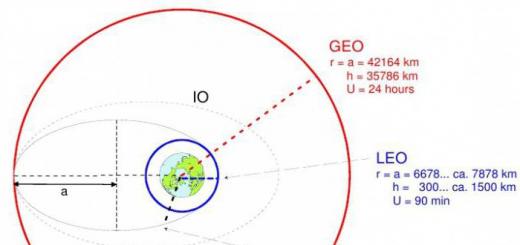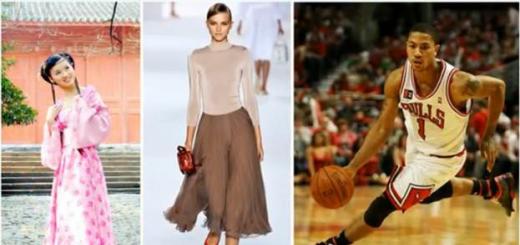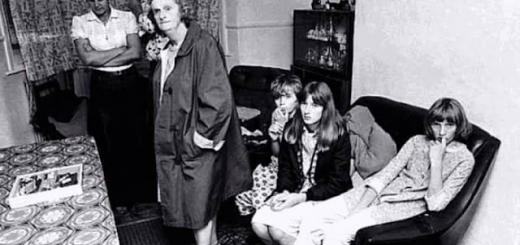The face expresses facial movements, weakening or strengthening them with a look of the eyes. The body, taking characteristic postures, makes a favorable or unfavorable impression. Hand gestures make us feel like or dislike a person. Finally, speech that reflects inner intelligence makes us admire, wonder, or be disappointed in the person being studied.
Any person is perceived by us, as a rule, in the form of a holistic image. We form our impression of it, sometimes ignoring many content factors. The face, body, hands, voice, speech of the object, which are indicators of its external reactions, seem to escape our attention.
Meanwhile, the face expresses mimic movements, weakening or strengthening them with a look of the eyes. The body, having appropriate forms, taking characteristic postures, makes a favorable or unfavorable impression. Hand gestures make us feel like or dislike a person.
The voice, with its inherent frequency range, resonance, tempo, and other factors, makes us feel good or bad. Finally, speech that reflects inner intelligence makes us admire, wonder, or be disappointed in the person being studied.
Thus, when assessing a person by external signs, the leader must understand the reactions of the face, body, hands, voice and speech. The studies of domestic psychologists aim us at studying in this regard: expressive reactions of the face, eye movements, physique, posture, gait, gestures, voice and speech.
1. Expressive facial reactions
In people assessment schemes, the face is identified with the whole personality. It speaks of spiritual world, intelligence and mood of a person. A person's face determines gender, age, race and ethnicity, and sometimes even social status.
In addition, we always try to determine the state and character of a person by the expression of the face and eyes. We are helped in this by the color and density of hair, skin color, wrinkles, facial muscles, etc. We tend to form an opinion about a person based on the reactions of his face.
The art of "face reading" has been known since ancient times. For a long time, they tried not only to determine character traits by the face, but also to predict fate. Psychologists have spent a lot of time and effort trying to find similarities between facial features and a person's character.
The famous Russian teacher P.F. Lesgaft argued that a person who has not been subjected to any strong sensations has a fresh face. Internal fears, which form the basis of a person's anxiety, make him accompany his actions with a number of unconscious movements.
“The prude,” emphasized P.F. Lesgaft, “under the lowered eyelid, the eye does not find a place for itself, as if spying on others. By the face one can determine the national type, the type of intellectual, the type of official, military man, merchant, peasant, lackey ... On the face of a military man, you can usually see an expression of self-confidence, a willingness to act, that is, to make movements according to the impressions received (for example, from subordinates), or signs of arrogance ( from the bosses).
Practice shows that by the face they learned well to determine only mental condition person. From the expression of the face one can read many subtle shades of various emotional disturbances. Even the clash of conflicting feelings, their struggle and confusion are reflected in characteristic external signs and are recognized by the eye of the observer.
It has now been proven that the face can reflect the entire spectrum emotional state person. Studies have established universal and individual and emotional expressions. They are based on six systems of facial reactions, specifically reflecting surprise, fear, indignation, disgust, joy and sadness.
As a rule, the assimilation of the features of the manifestation of universal expressions makes it possible to learn to "read" the emotional subtext of the actions of the person of interest. Let's get acquainted with this in more detail on the example of universal expressions.
1.1. Astonishment
Astonishment is an instant reaction. She always appears suddenly. If there is time to think about what might surprise, the surprise on the face will not be fixed. Surprise stimuli: sight of an object, sound, smell, touch, message, idea. It should be noted the main manifestations of the reaction of surprise: eyebrows upturned, wide wrinkles on the forehead; eyes wide, relaxed open, white sclera visible above the iris; accordingly, the mouth is open.
1.2. Fear
Fear is an emotion that arises in anticipation of something exceptionally detrimental to the individual. The cause of fear may be the expectation of physical pain, any unpleasant events for the individual that this individual cannot prevent.
The main manifestations of the fear reaction: eyebrows raised, stretched and brought together; short wrinkles on the forehead of the eye are open, a white sclera is visible above, the lower eyelid is very tense; lips parted, strongly tense and drawn back. Expressing the emotion of fear differs from expressing the emotion of surprise in four ways:
- with a reaction of surprise, wrinkles pass through the entire forehead, with a reaction of fear they are shorter and are indicated above the bridge of the nose;
- eyes are tense;
- the open mouth is shapelessly distorted, the lips are tense;
- surprise is a fleeting reaction, but fear is a longer one.
Sometimes the emotion of fear can merge with surprise. This happens if the harmful events are not expected, but come instantly. By the priority and stability of the manifestation of a particular emotion, one can judge the predominance of fear or surprise.
1.3. Indignation
Indignation
is the result of a mental disorder, a physical threat, or an intent to harm someone psychologically or physically. In a state of anger, a person’s blood pressure rises, which makes the face redden, veins swell on the temples and neck, breathing quickens, muscles tense.
The main manifestations of the reaction of anger: the eyebrows move, vertical folds appear between them, the outer ends of the eyebrows rise; forehead without horizontal wrinkles; eyes narrow; lips tensely compressed, sometimes teeth are exposed in a grimace.
In practice, controlled reactions of anger (anger) appear in two varieties. When the first kind of anger appears, only the eyebrows are its indicator, while the face remains neutral. This may be the case when a person:
- experiencing mild irritation;
- thinks about some difficult, unsolvable problem;
- concentrates on something;
- critically evaluates words, deeds, deeds;
- tries to hide anger from others.
The manifestation of the second type of anger is signaled by: a) eyebrows and eyelids and b) mouth and eyelids. This happens when a person listens to some extremely long, repetitive, uninteresting message for him.
1.4. Disgust
Disgust is a reaction to the sensation of taste, smell, sound, touch and sight of certain objects, including people. Naturally, the influence of such an object and the manifestation of a reaction to it depend on the culture of the observed and the situation in which he (a) is.
The main manifestations of the reaction of disgust: eyebrows lowered; lack of wrinkles on the forehead; eyes narrowed, almost closed; the corners of the lips are turned down. Sometimes, with a strong degree of disgust, the mouth is open and the tongue sticks out tensely, as in nausea; wrinkles on the nose. The stronger the disgust, the more wrinkles and the tighter the nose.
The spectrum of reaction of disgust is very wide - from a subtle wrinkling of the nose to the distortion of the entire face in a grimace of nausea. Disgust towards people usually appears in the form of contempt. Expressive reactions of disgust in response to a situation can merge with reactions of surprise and fear.
When anger and disgust are combined, the latter usually dominates. Expressive reactions here reflect the experience of thought; "How dare you show me this disgusting thing?" In combinations of surprise and anger, anger dominates, and in combinations of anger and fear, fear dominates.
1.5. Joy
Joy experienced as a feeling of exciting and uplifting, relief from something unpleasant or dangerous. The main manifestations of the reaction of joy: eyebrows and forehead almost do not take part in the formation of expression, the eyes often narrow and shine; the mouth is stretched, the corners of the lips rise up. This emotion of joy can be expressed in words; “How happy I am!”, “How pleased I am!”, “How happy I am!”
In some cases, joy can merge with surprise, while, as a rule, the reaction of surprise is fixed only for a moment. Quite often, anger and fear are masked by expressions of joy.
1.6. sadness
sadness most often caused by some kind of loss. It is fixed on the face from several minutes to several days. This emotion has a fairly wide range - from a state of sadness, to grief and suffering, when there are screams, screams, convulsive movements of the hands and body. External manifestations, meanwhile, do not always indicate the depth of experiences: some people tend to endure grief in silence, others noisily.
The main manifestations of the reaction of sadness: the eyebrows are shifted together, the outer ends are lowered between the eyebrows, small vertical folds; there are short wrinkles in the middle of the forehead, the eyes are slightly open, and a fold in the form of a triangle forms between the lower and upper eyelids; the corners of the mouth are turned down.
When evaluating the person being studied, it should be borne in mind that some people tend to constantly experience sadness. There are people who never fix sadness on their faces. National characteristics leave a very strong imprint on the manifestation of this emotion.
For example, the Scandinavians try to hide their sadness with anger, the Japanese always with a smile. When sadness and fear merge, fear prevails; when sadness and anger merge, anger takes over. At the same time, the position of the eyebrows, characteristic of sadness, is still difficult to bring down.
As a rule, emotions arise in response to some kind of stimulus. At the same time, the arsenal of facial movements for expressing emotions is the same; fear causes tension in the facial muscles, joy causes relaxation, etc.
Thus, when evaluating the emotional experiences of people by their faces, it is necessary to take into account the nature of the stimulus, the universal system of emotions, the nationality to which they belong, and the behavior of a particular individual.
2. Eyes
A person involuntarily opens his eyes wide if he suddenly sees something surprising, while the pupils of the eyes expand uncontrollably. It is noticed that the eyes widen when looking at a person who is liked, and narrow when looking at an unpleasant person.
When a person is satisfied with the information received or wants to think about something, he looks away. If someone catches the eye of another person, then he wants to draw his attention to himself or even enter into a trusting relationship with him. Usually, people look into each other's eyes somewhere around 20% of the time spent in a conversation,
It should be noted that the eyes determine tension, authority, interest, relationships of sympathy and antipathy, subordination and dominance. Eyes narrow in anger, contempt, superiority; expand with surprise and fear; they close with a certain degree of fear and shame, become covered with a “dragging” in a moment of tenderness; foggy with grief and sadness; shine with joy and a sense of hope.
Allocate views: sad, tender, suffering, angry, joyful, sorrowful, shy, self-satisfied, bashful, surprise, respect, contempt, strength, triumph, reverence.
3. Body
It is a carrier of data on the sex, age, race of a person. The impression that is created during the perception of the human body characterizes it in a certain way. There are three main body types: 1) endomorphic (thick, round); 2) mesomorphic (athletic, muscular); 3) ectomorphic (tall, thin).
In practice, it has already been proven that the endomorphic type, by nature, is most often talkative, friendly, accommodating; mesomorphic - prone to risk, even to leadership, independent; ectomorphic - nervous, tense, etc. Psychiatric and psycho-psychiatric examination, as well as sports psychology, have a lot of evidence for this.
4. Pose
By it, of course, one can judge the vitality, the degree of fatigue, self-confidence, and even the social status of a person. By the way a person tenses his muscles, folds his arms and legs, one can draw conclusions about a person’s emotional attitude, his intentions, and his attitude towards other people.
All poses can be roughly divided into two large groups. These are usually tense and relaxed postures. The former indicate a state of vigilance, anxiety, readiness for action; the second is about serenity and tranquility. Since the posture is associated with muscle activity, it serves as a "generator" of mood. Very often, through the posture, an emotional “infection” of the interlocutor occurs.
5. Gait
Its features depend both on the physique and on the emotional mood. When a person is in a sad state, he, as a rule, “drags” his legs, very often keeps his hands in his pockets and pulls his head into his shoulders. A person full of energy moves in “leaps”: either he quickly rushes forward, or he tightens his step.
A self-confident person usually holds his chin high, does not bend his back, swings his arms decisively and walks measuredly, clearly wanting to create a positive impression of himself.
6. Hands
Their movement conveys information about all aspects of a person’s personality. In life, they say that if a person’s hands are tied, he becomes silent. In life, each person has his own style of manipulation, that is, gestures that reflect his belonging to a particular culture.
Very often, gestures testify to the ethnic origin of a person, his upbringing, profession, etc. As a rule, gestures are divided into illustrators, regulators, adapters, effectors and emblems.
7. Voice and speech
The voice and speech of the person being studied give us information about his emotional experiences, intelligence, erudition, and even character. The voice of a person makes it possible to judge the interlinear meaning of the statement, the speaker's feelings, the degree of his language proficiency, culture and individual psychological characteristics. Exist individual characteristics voices (audio frequency range, resonance, tempo and speech control) and vocal variables (intensity, pitch, length).
All individual characteristics are stable characteristics of the individual. They make it possible to distinguish one voice from another and, therefore, to evaluate the speaker on a variety of aspects. Vocal variables also play an important role in assessing the speaker.
If the entire range of sounds from high to low tones is used in speech, they speak of a wide range of voice. If speech is predominantly in one key, we are faced with a narrow range of voice. Such speech is called monotonous. We usually raise our voice when we ask a question and lower it when we finish a message.
Resonance should also be noted here - this is a manifestation of such features of the voice as hoarseness, hissing, “rumble”, “thunderous” peals, etc. The humiliated or subordinate position of a person in life is usually combined with a weak resonance, an imperious nature develops in his voice “ metallic shade "and rolling.
7.1. Pace
Pace illustrates the speed of speech production (fast, medium or slow pace). Each person has a certain pace of speech. The intensity of speech may indicate the degree of emotional state of a person. A person's speech behavior serves as an indicator of his general erudition, intelligence features, behavioral motivation and emotional state.
7.2. Erudition
Erudition can be estimated to a certain extent by the content of speech. Erudition implies, first of all, the presence of deep and versatile knowledge. If it is clear from specific statements of a person that he is well versed in various issues, quickly finds strong arguments to confirm his point of view, using adequate language tools, then we can say about him that he is an erudite person.
7.3. Intelligence
Intelligence a person is evaluated by the logic of the statement and the richness of the speech content. The free choice of words, their diverse connection into sentences, and, finally, the ease of speech production are indicators of a developed intellect. Various violations in speech very often signal violations in the thought processes of a person.
Erudition and intellect, as well as the motivation of the behavior of the studied person, are related to the content factor of speech. Note that speech is an important informative signaling agent in assessing the emotional state of a person of interest to employees, in particular, his emotional intensity. Here the leader needs to get acquainted with three of them:
- features of the choice of words;
- the specifics of the grammatical design of the utterance;
- perception of speech in a state of emotional tension.
These criteria are currently sufficiently studied and experimentally confirmed. Let's look at them briefly.
- In a state of emotional tension, many people have difficulty choosing words when expressing their thoughts. In particular, in comparison with speech proceeding under normal conditions, the number and duration of pauses increase. Sometimes in practice they are called pauses of indecision. There is every reason to believe that long search pauses in many cultures of the peoples of the world are proof of the emotional intensity of a person. To draw a correct conclusion, it is necessary to compare the speech of the studied person in calm state and a state of emotional tension. In conditions of emotional tension vocabulary becomes less diverse. Speech in these cases is characterized by stereotypy: the speaker mainly uses those words that are most typical for his dialect, actively uses patterns.
- Grammatical incompleteness of phrases is another important indicator of emotionally intense speech. . The most characteristic here is grammatical informality. Often in a state of emotional tension there is a violation of the logical connection between individual statements, which leads to ambiguity. A typical feature of emotionally intense speech is a violation of the logic and consistency of the statement. The speaker is distracted from the main idea, focusing on the details, which, of course, makes it difficult to understand. Often in the future, the speaker realizes the mistake he made, however, trying to correct it, he usually gets even more confused.
- The perception of speech in a state of emotional tension is distinguished by a number of features. In particular, this is a deterioration in the mental processing of information and a decrease in “noise immunity”. The first leads to a hasty decision, and the second leads to a distortion of the meaning of the perceived. In general, as a result, the perception of speech information changes significantly.
It should be noted that speech is the most important indicator of a person's mental life . By speech, almost all mental deviations are clearly recorded. It has long been known that speech is a subtle indicator of a person's personal parameters. Accounting speech factors in the study of a person of interest, it gives the leader very important and reliable information, which the person of interest can hide from an attentive observer only with appropriate special training.
10/12/2012 - 10:42
Questions for the cyclocrossword puzzle:
1
. US astronaut, participant in the first ever flight to the moon. 2
. Punched hole. 3
. non-motorized aircraft. 4
. Galya. 5
. In sports: high-speed movement along a given winding route. 6
. Abbreviated name of the members of the Russian Constitutional Democratic (KD) Party (in Russian state in 1905 - 1917). 7
. Theologian. 8
. Playing multiple sounds smoothly and coherently. 9
. The name of one of the islands in the Neva delta. 10
. And Brezhnev, and Chernenko, and Andropov, and Gorbachev. 11
. Benefit, advantage. 12
. Title of nobility. 13
. Secret. 14
. A piece of furniture. 15
. The remains of an unburned candle. 16
. water flow, falling in ledges. 17
. He will be the first to extradite a foreigner. 18
. Shine that reflects something internal state person (about the eyes, look, gaze). 19
. Miner. 20
. One of the two external nasal openings. 21
. The amount of wages; salary. 22
. Historical region of Greece. 23
. Petersburg metro station. 24
. What is cut or cut. 25
. First month of the year.
Answers to the cyclocrossword puzzle:
1
. Aldrin. 2
. Break. 3
. Glider. 4
. Galina. 5
. Slalom. 6
. Cadets. 7
. Theologian. 8
. Legato. 9
. Yelagin. 10
. General Secretary. 11
. Benefit. 12
. Duke. 13
. Secret. 14
. Armchair. 15
. Cinder. 16
. Cascade. 17
. Accent. 18
. Twinkle. 19
. Miner. 20
. Nostril. 21
. Bid. 22
. Attica. 23
. Lakes. 24
. Inset. 25
. January.
Cyclocrossword grid:
This section contains free cyclic crosswords for publication in the media. Cyclocrossword (cyclic crossword) is a type of crossword in which words consisting of 6 letters are located around a cell with a number corresponding to the question number for a given word(see articleWhat is a cyclocrossword (cyclic crossword) and how to solve it? )
.
To open the grid of the cyclic crossword puzzle, click the preview of the graphic file of its grid. You can also use any download manager to make the grid cyclic crossword free download.
It should be noted that we provide the opportunity to receive cyclic crossword vector. How to get this cyclic crossword in vector, cm. .
Random Internet crosswords that you can solve online for free
Horizontal: 1. Spanish classical virtuoso guitarist and composer, one of the most significant classical guitarists of the 19th century, author of the ballets Alphonse and Leonora, or the Artist in Love and Hercules and Omphale. 3. A field temporarily left without crops. 5. In Slavic mythology and folklore, an old woman endowed with magic power. 7. First element periodic system elements. 10. Cart with a flat deck for transporting bulky items. 11. An above-ground shoot of a plant, which, while remaining part of the parent plant, has its own roots ...
Random scanwords and crosswords that you can download, print and solve for free
Horizontally
1
. solemn promise. 5
. Bravado. 9
. Medical institution of sanatorium type. 11
. Manufacture of steam, water or gas engines. 12
. A scream created by powerful lungs and a tinned throat. 13
. French inventor of photography. 14
. Devilish place. 16
. Elongated part of a pig's head. 17
. Ancient counting board. 19
. Rust. 20
. Achievement in the field of science, culture. 23
. Parakeet with bright plumage. 24
. Always something hiding the letter of the Latin alphabet ...
Restless (Kurlov); lascivious (White); timid (Muyzhel); fast (Balmont); trembling (Sologub); dormant (Chekhov); yellowish (Bulls); yellow (Ladyzhensky); gold (Kryukov); playful (Blagov); reddish (Potekhin); red hazy ... ... Dictionary of epithets
light- Spark, "Hook", Nasalization Hook (Ogonek) From Polish ogonek ponytail One of the lower accents [superscript or subscript]. A small crescent-shaped hook on the right under the letter, open to the right. Usually associated with... Font terminology
light-, nka, m. An entertainment collective event with refreshments, a musical part, amateur art performances. ◘ Somehow Galin's class decided to arrange a "light" at their house (for some reason it turned out to be impossible at school). SiSh, 1984, No. 3, 28. ... ... Explanatory Dictionary of the Language of Soviet Deputies
Ogonyok see enthusiasm Dictionary of synonyms of the Russian language. Practical guide. M.: Russian language. Z. E. Alexandrova. 2011. light n., number of synonyms: 28 ... Synonym dictionary
light- Lighter, matches. Do you have a spark? Youth slang … Dictionary of modern vocabulary, jargon and slang
An illustrated weekly magazine of literature, sciences and arts (and then politics and public life), published in St. Petersburg, from 1879 to 1883. Publisher G. Goppe, editor N. P. Alovert. Employees: G. Danilevsky, Count E. Salias, V. Krestovsky, ... ... Encyclopedic Dictionary F.A. Brockhaus and I.A. Efron
Light I m. 1. Glitter. 2. trans. Glitter, reflecting some kind of internal state of a person (about the eyes, look, gaze). II m. 1. reduce to noun. fire 2., 3. 2. caress. to noun. fire 2., 3... Modern dictionary Russian language Efremova
Ogonyok (Yakutia) the village of Ust Maysky district (ulus) of the Sakha Republic (Yakutia). Ogonyok magazine is a Soviet and Russian national weekly illustrated magazine. "Blue Light" festive entertainment program of the Soviet (first ... ... Wikipedia
FIRE nka; m. 1. only units. Decrease caress to Fire (1 digit). Ignite about. O. was barely warm in the oven. Weakly flashed about. // Expand. Something that burns, from which you can ignite something. Oh. have a light? Give me a spark, I want to smoke! / About the emergence, origin ... ... encyclopedic Dictionary
light- 1) match; 2) a den for playing cards; 3) weapons ... Thieves' jargon
Books
- Ogonyok - 110 years old (set of 3 books), Ogonyok - 110 years old: Favorites. The Ogonyok magazine is 110 years old! It is difficult to find at least one family in our country where the files of this magazine, which for such a long time has become a part of not only culture, but also everyday life, would not be stored ...
OGONEK
Glitter.
Glitter, reflecting any internal state of a person (about the eyes, look, gaze).
II m.
reduce to noun. fire 2., 3.
caress to noun. fire 2., 3.
Large modern explanatory dictionary of the Russian language. 2012
See also interpretations, synonyms, meanings of the word and what is OGONEK in Russian in dictionaries, encyclopedias and reference books:
- OGONEK in the Dictionary of thieves' jargon:
- 1) a match, 2) a den for playing cards, 3) ... - FIRE in big Soviet encyclopedia, TSB:
Russian Soviet socio-political and literary-artistic illustrated weekly magazine. Published since 1923 in Moscow. The first editor is M. E. Koltsov (before ... - OGONEK in encyclopedic dictionary Brockhaus and Euphron:
illustrated weekly magazine of literature, sciences and arts (and then politics and public life), published in St. Petersburg, from 1879 to 1883 ... - FIRE in the Encyclopedic Dictionary:
, -nka, m. 1. see fire. 2. trans. Passion, enthusiasm (colloquial). Work with fire. 3. Evening (in 2 meanings) with ... - OGONEK in the Big Russian Encyclopedic Dictionary:
"Spark", weekly. illustrated social-polit. and lit.-thin. magazine, since 1899, St. Petersburg, since 1923, Moscow. Leads the story from the same. magazine (published until ... - OGONEK in the Encyclopedia of Brockhaus and Efron:
? an illustrated weekly magazine of literature, sciences and arts (and then politics and public life), published in St. Petersburg, from 1879 to ... - FIRE in the Full accentuated paradigm according to Zaliznyak:
spark, sparks, spark, spark "in, spark, spark" m, spark, sparks, spark "m, spark" mi, spark, ... - OGONEK in the dictionary of Synonyms of the Russian language:
evening, burning, enthusiasm, spark, fire, plant, hobby, flower, … - FIRE in the New explanatory and derivational dictionary of the Russian language Efremova:
- FIRE in the Dictionary of the Russian Language Lopatin:
fire, ... - FIRE full spelling dictionary Russian language:
fire, ... - FIRE in the Spelling Dictionary:
fire, ... - OGONEK in the Dictionary of the Russian Language Ozhegov:
Colloq passion, enthusiasm Work with a twinkle. light<= огонь огонек вечер N2 с развлекательной программой, с легким угощением Голубой о. … - FIRE in the Explanatory Dictionary of the Russian Language Ushakov:
light, m. 1. Decrease-caress. to fire. Get closer to the fire. - Luminous dot, shine. In the village across the river the light went out. … - FIRE in the Explanatory Dictionary of Efremova:
1. m. 1) Glitter. 2) trans. Shine that reflects something. the internal state of a person (about the eyes). 2. m. 1) Decrease … - OGONEK in the New Dictionary of the Russian Language Efremova:
I m. 1. Glitter. 2. trans. Shine, reflecting any internal state of a person (about the eyes, look, gaze). II m. … - TOASTS in Wiki Quote:
Data: 2007-07-28 Time: 15:40:41 May you always succeed in any work Continue to be accompanied by success Health, happiness, long life We wish you ... - SOFIA ROTARU in Wiki Quote:
Data: 2008-09-06 Time: 01:10:24 Sofia Rotaru is a Russian, Ukrainian, Moldavian and Soviet pop singer and actress, the first female performer to be awarded ... - BOTH ON! in the Quote Wiki.
- SMIRNOVA SOFIA IVANOVNA in the Brief Biographical Encyclopedia:
Smirnova (Sofya Ivanovna) is a talented writer. Born in 1852; married to famous actor N.F. Sazonov. I started writing very... - FINN in the Literary Encyclopedia:
Konstantin Yakovlevich [pseudonym Khalfin, 1904—] - novelist and playwright. R. in Moscow, in the family of an employee. Studied at a real school. Have worked … - FEUILLETON in the Literary Encyclopedia:
a small artistic and journalistic form, characteristic of the periodical press (newspaper, magazine) and distinguished by topicality, satirical sharpness or humor. The history of the term. Word … - RICHTER in the Literary Encyclopedia:
1. Zinaida Vladimirovna is a modern writer-journalist. Born into an artistic family. For the first time she appeared in print with “Notes of a Traveler. - On foot …
The internal state of a person, as you know, plays the most important role in achieving the goal. If you are depressed and downtrodden, then nothing will force you to act. On the contrary, you will put your hands down, hide your head in the sand, withdraw into yourself and, instead of doing something, breed pessimism in yourself and engage in introspection and analysis of your life. Such mental activity will not bring any positive result, rather the opposite. You will dive deeper into yourself.
If you are worried about something, constantly worrying about something, nervous, then you will also be inactive. Your problems and worries will consume you, your nerves will be at the limit, you will not be able to concentrate on anything, because you will always be distracted by extraneous noises. Being in this state, you will not be able to concentrate on any activity.
Conclusion: your future depends on your inner state. Today you fell into despondency, tomorrow you laugh for no reason, and the day after tomorrow you choke in tears. Nothing good can be expected from such swings. All week you had a severe headache, haunting you, constantly reminding you of yourself, because of which you did nothing.
Unlike external circumstances, which you cannot control, you can control your internal state. In the event that you have a goal, for which you want to take control of your internal state. What you feel is only influenced by people. Pest people have a negative effect on your psyche, causing irreparable damage to it; falling under their influence is very difficult then to get out of this influence. They kill you slowly and watch with pleasure as you break, become flexible plasticine in their hands. But it depends on you whether they will kill you or only hurt you. Will you let them take over your inner state, or will you fight back strongly by taking control of your inner state?
In the last couple of weeks I have been very, very ill. This continues to this day. However, I learned to control my inner state. As soon as I feel that I am ready to give up, to put a trophy at the feet of people-pests, I remember my goal and take it and do it. The easiest way is to say, “I can't take it anymore. I'm tired. I don’t want anything. ”, and where, how harder,“ I can! I will succeed! I will get it no matter the cost!” You need to constantly remind yourself of what awaits you if you do it right now, no matter what and no one. This is especially vital when pest people appear, ready at any moment to envelop you in cobwebs. Your internal state will greatly depend on whether you are moving forward / backward or standing still.
It is useless to fight pest people - there are too many of them, and you are alone. Instead, direct all your energy (whatever it may be) to a cause that will bring you satisfaction and success. Try as much as possible to filter everything that touches your inner state. But if you want to cry, cry; if you want to sleep, sleep; If you want to scream, scream. Only let such desires not drag on for a long time - it is in your own interests!










